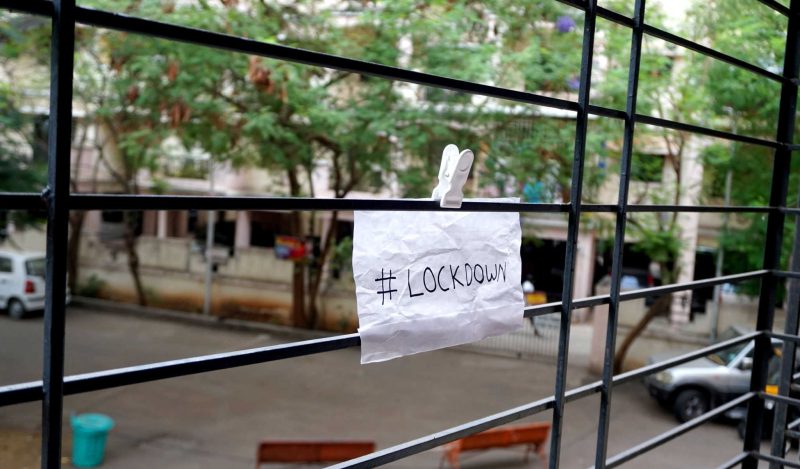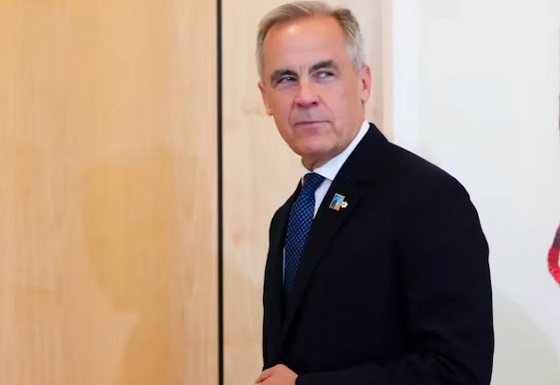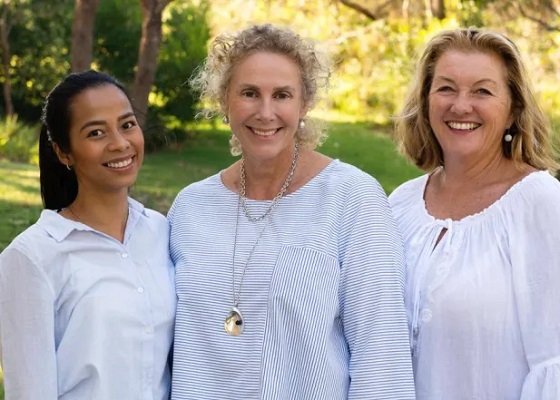Great Reset
The WHO Pandemic Treaty could strip Canada of its ability to make its own health decisions

This article supplied by Troy Media.
 By Cosmos Voutsinos
By Cosmos Voutsinos
Don’t let Ottawa sign away our sovereignty to the WHO, placing power in the hands of unelected global officials
U.S. President Donald Trump’s recent call for Canada to become the 51st state rightly triggered national outrage. Yet while many were offended by his
provocative remarks, a more real and insidious assault on our sovereignty is unfolding in Geneva, where the World Health Organization (WHO)
Pandemic Treaty threatens to shift power from democratic nations to unelected global bureaucrats.
The Treaty, under negotiation, is aimed at strengthening global health responses to future pandemics. While proponents argue it will improve global preparedness, critics warn it will undermine national sovereignty, giving the WHO the power to impose sweeping health measures—lockdowns, vaccine mandates, and travel restrictions—without consultation or approval from elected governments. The treaty empowers the WHO director-general to declare a global health emergency, effectively bypassing national decision-making and subjecting countries to externally imposed mandates.
The Intergovernmental Negotiating Body (INB), established by the WHO to draft a new international pandemic agreement, concluded its 13th meeting on April 16. The final proposed treaty will be presented for consideration and adoption at the 78th World Health Assembly, scheduled to begin on May 19.
While global cooperation on public health is essential, Canada’s health decisions should remain in Canadian hands. The treaty gives the WHO significant authority to mandate health responses, potentially overriding local decisions made by Canadian experts and governments. This could mean that Canada’s ability to make pandemic decisions based on local context and need could be compromised by a centralized, unelected body, which Canadians never voted to give power to.
This is not just a health care issue—it is a fundamental challenge to democratic governance. The treaty lays the groundwork for digital health passes and surveillance systems that could weaponize personal health data, as we saw during the trucker protests in Ottawa. Do Canadians want a future where personal freedoms are tied to health status and tracked globally?
There are also serious financial implications. The treaty introduces a “Pathogen Access and Benet Sharing System” with undefined costs, potentially saddling Canada with an ongoing financial burden to fund global health initiatives. Earlier drafts proposed that countries contribute five per cent of their health budgets, a clause that has been removed but replaced with new, opaque financial obligations that could lead to billions in taxpayer dollars being diverted to the UN.
The United States has already initiated its withdrawal from the WHO, raising important questions about how Canada will coordinate cross-border policies and maintain its trading relationship with our largest neighbour during future health crises.
The WHO is not accountable to Canadian voters. It has no direct responsibility to our Parliament or provincial health authorities. It has a poor track record, failing to declare COVID-19 a pandemic in time, hesitating to challenge China’s handling of the virus, and offering shifting guidance that undermined public trust. Why should Canadians accept its authority without direct oversight?
Worse, Parliament will not be sitting during the critical window when the treaty will be presented and potentially signed. According to the House of Commons Sitting Calendar, Canadian Parliament is not scheduled to sit until May 26, 2025, which is after the World Health Assembly concludes. This means decisions could be made behind closed doors with little public debate or political consequence.
The treaty’s implications go far beyond health and set a dangerous precedent that in the next crisis, Canadians may not have a say in how their government responds.
International cooperation should not come at the expense of our freedom and sovereignty. The WHO can offer advice, coordination, and resources but it should not dictate our national response. Canada’s government must reject this treaty, ensuring that any related commitments are brought before Parliament for full debate and approval.
Anything less would betray the trust Canadians place in their leaders. This is not just about public health—it’s about protecting our democratic rights, our sovereignty, and our freedom.
Cosmos Voutsinos is a retired engineer who has published multiple scientific papers that have garnered a total of 96 citations. He earned his Bachelor of Applied Science (BASc) at the University of Waterloo and his Master of Engineering (M.Eng) degree from McMaster University.
Troy Media empowers Canadian community news outlets by providing independent, insightful analysis and commentary. Our mission is to support local media in helping Canadians stay informed and engaged by delivering reliable content that strengthens community connections and deepens understanding across the country.
Business
World Economic Forum Aims to Repair Relations with Schwab

The whistleblower has always been anonymous, and it remains very suspicious that the very organization he created would turn on him after receiving an anonymous letter that they admitted may not have been credible.
World Economic Forum founder Klaus Schwab stepped down from his chairman position at the organization on April 20, 2025, amid accusations of fraud. Our computer had forecast that the WEF would enter a declining trend with the 2024 ECM turning point. This staged coup happened about 37 years after the first Davos meeting (8.6 x 4.3). From our model’s perspective, this was right on time. Now, Schwab and the WEF are working to repair ties.
An anonymous whistleblower claimed that Klaus Schwab and his wife collaborated with USAID to steal tens of millions in funding. The whistleblower has always been anonymous, and it remains very suspicious that the very organization he created would turn on him after receiving an anonymous letter that they admitted may not have been credible. Something like this would never be acceptable in any court of law, especially if it’s anonymous. It would be the worst or the worst hearsay, where you cannot even point to who made the allegation.
Back in April, the WEF said its board unanimously supported the decision to initiate an independent investigation “following a whistleblower letter containing allegations against former Chairman Klaus Schwab. This decision was made after consultation with external legal counsel.”
Now, the WEF is attempting to repair its relationship with its founder ahead of the next Davos meeting. Bloomberg reported that the WEF would like to “normalize their relationship [with Klaus Schwab] in order to safeguard the forum and the legacy of the founder.”
Peter Brabeck-Letmathe has replaced Schwab for the time being, but is less of a commanding force. Schwab’s sudden departure has caused instability in the organization and its ongoing mission. Board members are concerned that support for the organization will begin to decline as this situation remains unresolved.
The World Economic Forum’s annual revenue in 2024 was 440 million francs ($543 million), with the majority of proceeds coming from member companies and fees. Yet, the number of people registered to attend the 2025 Davos event is on par if not slightly exceeding the number of participants from the year prior.
Schwab’s departure has damaged the Davos brand. There is a possibility that the organization is attempted to rebrand after Agenda 2030 failed. The WEF attempted to move away from its zero tolerance stance on ESG initiatives after they became widely unpopular among the big industry players and shifting governments. The brand has attempted to integrate the importance of digital transformation and AI to remain relevant as the tech gurus grow in power and popularity. Those who are familiar with Klaus Schwab know the phrase, “You will own nothing and be happy.” These words have been widely unpopular and caused a type of sinister chaos to surround the brand that was once respected as the high-brow institution of globalist elites.
European Central Bank President Christine Lagarde was slated to replace Schwab in 2027 when her term ends, and all reports claimed that he was prepared to remain in the chairman role for an additional two years to ensure Lagarde could take his place. What changed seemingly overnight that would cause the organization to discard Schwab before he was due to retire?
Schwab denies any misconduct and filed lawsuits against the whistleblowers, calling the accusations “calumnious” and “unfounded.” He believes “character assassination” was the premise of the claims.
I am no fan of Klaus Schwab, as everyone knows. I disagree with his theories from start to finish. Nevertheless, something doesn’t smell right here. This appears to be an internal coup, perhaps to distract attention from the question of alleged funds for the WEF from USAID, or to try to salvage the failed Agenda 2030. Perhaps they will claim that no misconduct had occurred since DOGE did not raise concerns or there is a possibility that those behind the internal coup are concerned that Schwab’s counter lawsuit could uncover new corruption. The investigation into Schwab has not concluded, but after only three months, the WEF would like to wrap it up. It appears that the WEF does not want to welcome Schwab back; rather, they would like to ensure an amicable resolution to maintain both the brand’s reputation as well as the founder’s.
MAiD
Canada’s euthanasia regime is not health care, but a death machine for the unwanted

From LifeSiteNews
After ten years of assisted suicide, Canada has become synonymous with grim stories of death by lethal injection, with the regime’s net growing ever wider.
When Justin Trudeau took power in 2015, he announced that Canada was back and that his election was a harbinger of “sunny ways” and a new era for the country.
It was a new era, alright, but the ways turned out not to be sunny. In his ten years in office, over 60,000 Canadians were euthanized under the regime that his government brought in, and overnight, Canada became an international cautionary tale.
International headlines highlighted the grim story of Canada, where people were getting lethal injections because they were disabled; because they couldn’t get cancer treatment; because they were veterans with PTSD. As the U.K.’s Spectator asked in a chilling 2022 headline: “Why is Canada euthanizing the poor?”
READ: New Conservative bill would ban expansion of euthanasia to Canadians suffering mental illness
Indeed, in the United Kingdom – where Labour MP Kim Leadbeater’s dystopian assisted suicide bill passed last week – Canada was seen as so objectively horrifying that euthanasia advocates insisted that comparisons to their Commonwealth neighbor constituted fearmongering. Leadbeater, in fact, stated that her bill is “worlds apart” from Canada’s euthanasia regime. Anyone advocating for euthanasia must now reckon with Canada, which highlights how short and slick the slope really is.
Earlier this month, the New York state legislature also passed a bill legalizing assisted suicide; assisted suicide laws are also being considered in Maryland and Illinois. On June 14, the New York Times published a powerful op-ed by Ross Douthat titled “Why the Euthanasia Slope Is Slippery.” As is now standard in the international press, Canada’s euthanasia regime came up.
“A few days before the vote, my colleague Katie Engelhart published a report on the expansive laws allowing ‘medical assistance in dying’ in Canada,” Douthat wrote, “which were widened in 2021 to allow assisted suicide for people without a terminal illness, detailing how they worked in the specific case of Paula Ritchie, a chronically ill Canadian euthanized at her own request.”
“Many people who support assisted suicide in terminal cases have qualms about the Canadian system,” Douthat continued. “So it’s worth thinking about what makes a terminal-illness-only approach to euthanasia unstable, and why the logic of what New York is doing points in a Canadian direction even if the journey may not be immediate or direct.”
Notice, here, that a columnist can refer to the “Canadian direction” with the assumption that everybody recognizes, without question, that this a particularly bad direction to be heading in. Even euthanasia advocates, while privately admiring the scale and efficiency of the Canadian killing fields, feel it necessary to distance themselves from Canada publicly.
Douthat noted that the Canadian example reveals why the slippery slope is inevitable; that people have essentially come to expect that doctors “always need to offer something,” and that when no further care or treatment is possible, that assisted suicide should be available. This logic “assumes that the dying have entered a unique zone where the normal promises of medicine can no longer be kept, a state of exception where it makes sense to license doctors to deliver death as a cure.” But Douthat observes:
The problem is that a situation where the doctor tells you that there’s nothing more to be done for you is not really exceptional at all. Every day, all kinds of people are told that their suffering has no medical solution: people with crippling injuries, people with congenital conditions and people … with an array of health problems whose etiology science does not even understand.
READ: Cardinal Dolan denounces New York assisted suicide bill as ‘cheapening of human life’
The logic of assisted suicide means that inevitably, eligibility will expand to all kinds of suffering.
“Suffering is general and not limited, the dying are not really a category unto themselves, and the case for a lethal solution will creep beyond the bounds you set,” Douthat concluded. “In the end, you can have a consensus that suicide is intrinsically wrong, that suffering should be endured to whatever end and that doctors shouldn’t kill you. Or you can have an opening to death that will be narrow only at the start – and in the end, a wide gate through which many, many people will be herded.”
How do we know? Well, Douthat writes, “The Canadian experience shows this clearly.” After ten years of sunny ways, “Canada” has become synonymous with grim stories of death by lethal injection.
-

 MAiD2 days ago
MAiD2 days agoCanada’s euthanasia regime is not health care, but a death machine for the unwanted
-

 Business2 days ago
Business2 days agoOttawa Funded the China Ferry Deal—Then Pretended to Oppose It
-

 Alberta2 days ago
Alberta2 days agoAlberta’s government is investing $5 million to help launch the world’s first direct air capture centre at Innisfail
-

 armed forces2 days ago
armed forces2 days agoIt’s not enough to just make military commitments—we must also execute them
-

 Business2 days ago
Business2 days agoCarnival Cinemas moving downtown: Owner Bill Ramji buys former Uptown Cinemas from RDP
-

 armed forces2 days ago
armed forces2 days agoMark Carney Thinks He’s Cinderella At The Ball
-

 Business2 days ago
Business2 days agoMunicipal government per-person spending in Canada hit near record levels
-

 Business1 day ago
Business1 day agoBehind the latest CPI Numbers: Inflation Slows, But Living Costs Don’t











